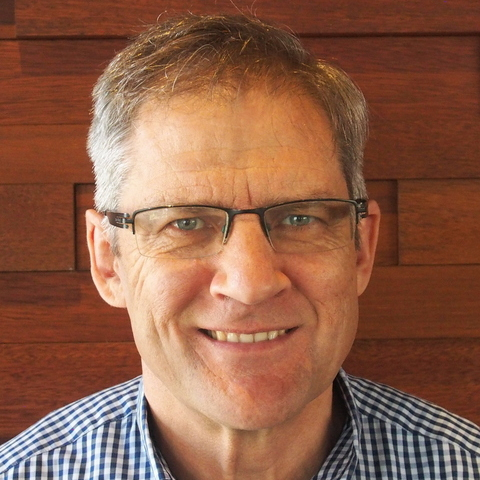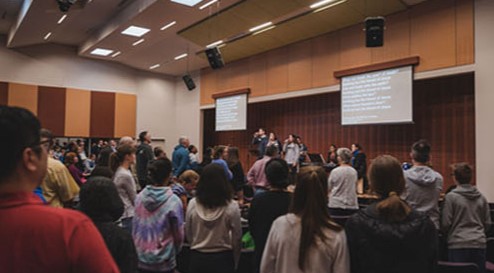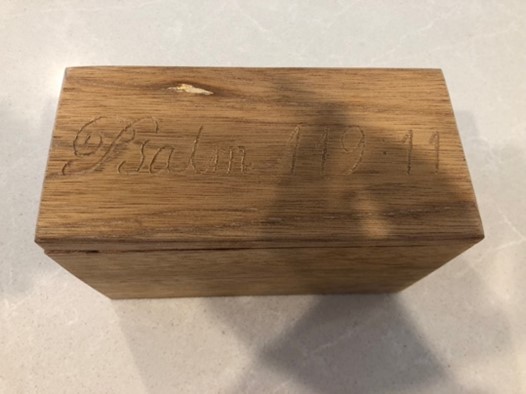AUDIO RECORDING

WRITTEN TRANSCRIPT
Getting underway with the process of [eventually] finding a new Senior Pastor
As most of you know I have indicated to Session that the time has come to start the process of looking for a new senior pastor. I will be seventy, Lord willing, in two and a half years. I have lost none of my conviction that the gospel needs to be made known clearly and boldly to all, nor that the health of God’s people is founded on the faithful teaching of God’s Word in our weekly gathering and in every aspect of our lives, nor that the Christian life is a life of serving one another in love with the gifts we are given. But I am also conscious that my capacity to work the hours required is diminishing with increasing age – I have far less tolerance, for example, of late nights and early mornings, and I have a growing conviction that a slightly different mix of gifts in the senior pastor would be helpful for the congregation’s continuing growth. Nothing will happen quickly – in fact I think the process may take one to two years, but because of that we do need to start the process and that starts with deciding the process we will seek to follow.
Two Pathways
There are two basic pathways. The first involves me nominating a retirement date, the Presbytery consulting the congregation about my retirement, and then, if the date is some time in the future, appointing an ‘interim-moderator designate’ who can then start the ‘call’ process. The ‘interim moderator’ is a minister of Presbytery who is appointed by Presbytery to take responsibility for the functioning of the church in a vacancy, including chairing [moderating] meetings and supervising the call process. Until the called minister’s resignation takes effect he is an ‘interim moderator designate’, someone who will take up the role of interim moderator when the called minister departs the congregation. Importantly during the time before the resignation takes effect he can start the call process. In this scenario the new minister cannot take up his post until the old minister departs, and that can mean there may be either a period of vacancy where the congregation does not have a senior minister, or a suitable person who has accepted a call to the congregation may have to wait some time before he can take up his position, which can be a disincentive for some to come.
The other pathway is for the Presbytery, at the minister’s request, to create a ‘colleague and successor’ position. A colleague and successor is a minister who is called to the congregation on the understanding that when the present senior minister retires he will take up the role of senior minister. Upon receiving this request the Presbytery consults with the congregation and if the congregation is agreeable and the Presbytery thinks this is the appropriate path then the Presbytery will appoint an interim moderator whose sole task in this case is to preside over the call process and all the meetings associated with that process. On this scenario there need be no period of vacancy and a minister who is called can take up his position immediately. This gives continuity to the congregation and the staff, and flexibility in both the starting date of the new minister and the retirement date of the old minister. There is a need in this process to have a designated period of overlap between the old and the new minister which can be helpful in allowing the new minister to settle in. In my mind, however, that designated period should be fairly brief, three to at most six months.
Session has chosen a process
I am writing about these options now because after several months of careful and prayerful deliberation Session have opted to pursue the second process, the appointment of a colleague and successor. Accordingly I have written to Presbytery requesting they create such a position and this will be considered at the December meeting. If they agree Presbytery will then want to satisfy itself that the congregation, you, agree to the process, which I anticipate will happen some time in the New Year and involve Presbytery’s delegates meeting with the congregation.
Session have opted to pursue the second process, the appointment of a colleague and successor.
The call
I have spoken above of the ‘call’ process. The ‘call’ enshrines an important principal, that congregations choose the person who will have authority to minister God’s word amongst them and who can expect both their support in that role and their commitment and obedience to the Word faithfully taught. To exercise this choice the congregation must be assured of the character, competence, gifts, orthodoxy and learning of the person to be called, and should not have anyone intruded on them where they are not satisfied for the minister, and in this case the senior minister, affects directly their own continued growth as followers of the Lord Jesus through the regular teaching of God’s word Sunday by Sunday. The ‘call’ also encourages the minister by the recognition of his suitability and facilitates the reception of his ministry by the congregation. Presbyterian congregations, unless there are exceptional circumstances, call their ministers.
Congregations choose the person who will have authority to minister God’s word amongst them
As well as being an important principle there is also a process involved in making a call, a process developed to ensure the call is conducted thoughtfully and deliberately with everyone’s interests considered. This process is in the hands of the interim moderator usually assisted by a selection committee composed of members of the congregation elected by the congregational meeting held for this purpose. I will not go into that here but the description of these pathways and the whole process can be found in the Presbyterian Church of Victoria Code, sections 4.76 and 4.99 ff [section thirteen], which can be accessed at Documents - Presbyterian Church of Victoria (pcv.org.au)
Be involved
While nothing, Lord willing, will change in the daily life of the church and Sundays will proceed as usual with the choice by Session of the preferred pathway the process of seeking a new senior minister has begun and over the next twelve months will involve you. This is an important choice for the congregation and an important opportunity to think about the future direction and character of the church, so I would encourage you to be involved in the process as you have opportunity.
This is an important choice for the congregation and an important opportunity to think about the future direction and character of the church, so I would encourage you to be involved in the process as you have opportunity.
First of all be prayerful. The church belongs to the Lord Jesus – we are His, and so we should be asking the Lord to provide a faithful, godly and suitably gifted person to pastor and teach us so we will all be equipped to serve and grow up to maturity as believers [Eph. 4:7-16], and a suitably gifted person who can lead competently our very good staff team. And we should be praying for those who will be involved on behalf of us all in developing selection criteria and seeking out a suitable person. This can be an onerous responsibility.
First of all be prayerful.
Secondly, if you want to be fully involved in the process consider becoming a member.
Thirdly, resolve to participate in the process by attending the meetings and paying attention to the progress of the process.
Fourthly, while it is an important decision remember the health and character of our church is determined by each of us being diligent in practising the ‘one-anothers’ we are called to in Scripture – loving one another as Christ has loved us, serving one another with the gifts God has given each believer, teaching one another with the truth He has entrusted to us all, admonishing one another, praying for one another.
Fourthly...remember the health and character of our church is determined by each of us being diligent in practising the ‘one-anothers’ we are called to in Scripture
And finally, back to prayer, that in all this the Lord would be glorified by preserving us in a common mind in the gospel, in the love that makes it known, and in a determination to ‘maintain the unity of the Spirit in the bond of peace.’ [Eph. 4:3]
And finally, back to prayer, that in all this the Lord would be glorified by preserving us in a common mind in the gospel
RECENT POSTS





